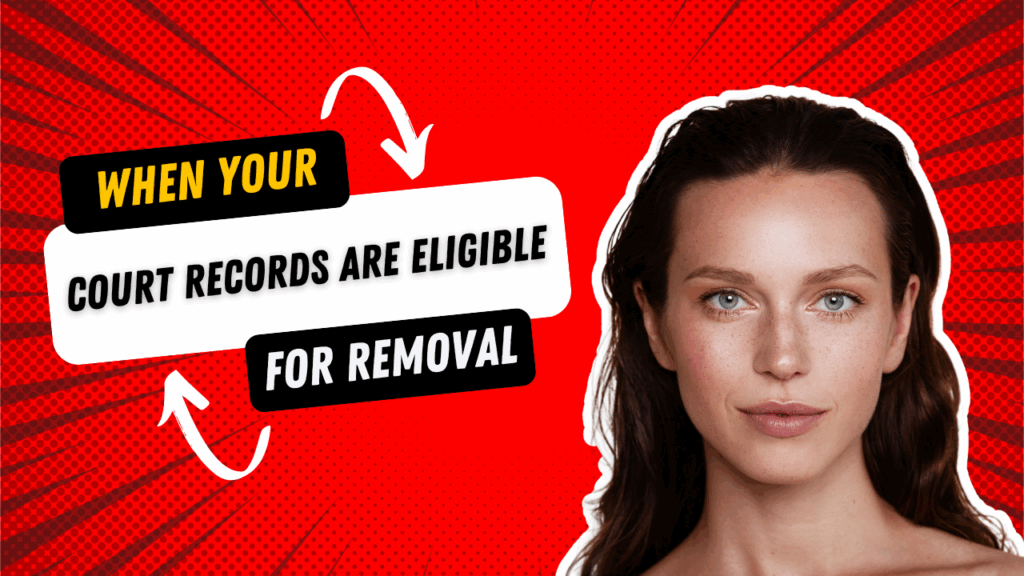Court records can damage your reputation, but not all of them have to stay online forever. Whether you can remove a court record depends on the type of case, how it was resolved, and your legal rights. Here’s how to know when a court record is eligible for online removal.
Dig Deeper: How to Remove Court Records from Google Search
1. Expunged or Sealed Records
If your case has been expunged or sealed, it is legally hidden from public view. Once you have an expungement order, you can:
- Request removal from court websites
- Send proof to third-party sites like background check services
- Use Google’s removal tool for outdated or sensitive links
When It Applies:
- You were found not guilty
- Charges were dismissed
- You completed a diversion or rehabilitation program
- The case was a first-time, non-violent offense
2. Dismissed Cases
If your case was dismissed, it means no final judgment was made against you. Many websites will agree to remove dismissed cases if you provide proof.
When It Applies:
- The case was resolved in your favor
- No conviction was entered
3. Incorrect or False Information
If the court record contains mistakes or false details—such as wrong names, incorrect charges, or outdated information—it may be removed by contacting the source.
When It Applies:
- The record is factually inaccurate
- You can prove the error (court orders, ID, legal documents)
4. Sensitive Personal Information
If the court record contains sensitive personal details, such as your Social Security number, home address, or financial data, you can request removal under privacy laws.
When It Applies:
- Your identity or safety is at risk
- The information violates privacy policies (like Google’s Content Removal Policy)
5. Juvenile Records
In most states, juvenile court records are not public. If your case was from when you were under 18, you can often have it sealed or removed.
When It Applies:
- The offense occurred before you turned 18
- The case is not a serious violent crime
6. Violations of Website Policies
Some websites have their own policies against displaying certain types of court records, such as:
- Cases related to medical issues
- Records containing hate speech or defamatory content
- Sensitive criminal allegations that were proven false
Check each website’s terms of service for removal options.
What If Your Case Doesn’t Qualify?
If your court record isn’t eligible for removal, you still have options:
- Suppress the record with positive SEO (search engine optimization)
- Request updates or corrections for outdated information
- Consult a lawyer for a legal approach (cease and desist, defamation claim)
Knowing when a court record is eligible for removal can save you time and frustration. If your record is expunged, dismissed, incorrect, or contains sensitive information, you have a strong chance of getting it removed.
Need help? Top Shelf Reputation specializes in removing and suppressing court records online. Contact us today to protect your name and clean up your search results.

